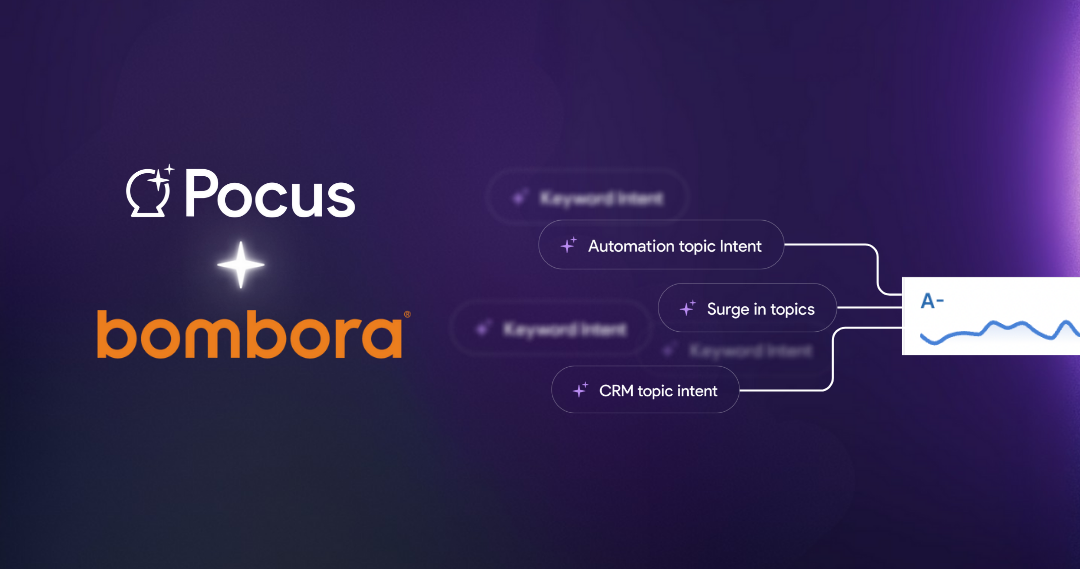With over 190 million active monthly users, Canva is the world’s only all-in-one visual communication platform for consumers and enterprises worldwide. Their simple self-serve model and suite of tools for a wide variety of use cases have made them a textbook example of PLG success. Canva has also excelled at moving upmarket by leveraging product champions to help identify growth, consolidation, and expansion opportunities for Canva Enterprise.
We sat down with Claydan Krivan-Mutu, Head of GTM Enablement, to learn more about how Canva uses Pocus to drive their move upmarket, run account consolidation plays, and identify expansion opportunities.
Millions of users, no prioritization
Canva’s explosive growth over the past ten years has been driven by their easy-to-use tools that make visual design and communication easy for all, as well as their freemium model that takes the friction out of sign-up. In theory, the millions of self-serve accounts created should be an advantage to the Canva sales team. Account Executives can sell Canva's enterprise value and impact to active users who are already engaged with the platform. In reality, this huge pool of self-serve users was causing several issues:
- Digging through data was monopolizing reps’ time. Creating a list of target accounts was no small task for reps. In order to tap into Canva’s huge pool of users, reps had to leverage complicated models to identify key users to reach out to. Reps were spending up to 2 hours when searching for these users. As Clay explained, “It was incredibly arduous. Our sellers had to act as data scientists rather than being out in the field with customers, which can be frustrating for them.”
- Target lists lacked account context or prioritization. Once reps created account lists, they had limited insight into why particular accounts were surfaced or which should be targeted first. Reps knew high-value prospects were hidden in their lists, but had no idea where to look.
- No resources to build a custom solution. To build more rep efficiency, Canva piloted an in-house solution. While the pilot helped reduce the number of hours reps spent building their account lists, the team didn't have the time or resources to build out and maintain custom solutions in-house.
Clay and his team knew they needed to find a tool that would help reps build pipeline and run data-informed playbooks with ease and efficiency.
The solution: A library of AI-powered playbooks
During tool evaluations, Clay identified Pocus as a forward-thinking vendor who deeply understood Canva’s GTM needs, both as a data-principled company and to maximize the depth of connection. He knew that Pocus could support their efforts to build data-backed playbooks powered by their most important signals, like product usage, marketing content engagement, and pricing page visits.
After onboarding with Pocus, the Canva team unlocked three major wins:
- Faster speed to lead. Pocus unified all of Canva’s data across multiple sources so reps no longer need to spend a full day toggling across tools and dashboards, or building custom reports in SQL to find the accounts they want to target. Plus, Pocus’ ability to layer signals makes it clear when accounts have the highest intent so account executives know how to map the customer’s unique challenges to the right Canva use case.”

- Rich account context powers smarter sales enablement. Pocus is able to tell the full story of an account through data. Using this context, Canva’s marketing team is able to personalize content in their outreach sequences, helping to automate some of the sales team’s workload. They’re also able to use this information to create more strategic content that hones in on the benefits customers value most.

- Improved playbook performance, powered by AI. As a company already operating with AI-powered tooling, Canva was keen to unlock predictive data through Pocus AI. Pocus AI unlocks predictive data for Canva’s sales team, helping reps understand that accounts with certain behaviors are high-value customers and recommending the next best step for providing customers with valuable engagements. Using Pocus’ native reporting tools, Clay and his team are also able to better evaluate playbook success and iterate to drive incremental improvements.

As Canva continues to see success with Pocus, the team is expanding their use cases for the platform and integrating even more signal sources. In Clay’s words, Pocus is a “business critical tool.”
Moving upmarket with Pocus playbooks
Canva’s approach to playbook creation and experimentation is a great strategy for teams who have lots of data but aren’t sure what matters most. They started with a large collection of over 100 plays to be used by the entire sales team. Then, over time, they narrowed the playbooks down to the most effective strategies and assigned plays to specific reps based on their individual goals. Pocus’ AI ensures they don’t miss any opportunities.
.avif)
Canva’s playbook focuses on generating pipeline out of their incredible volume of existing users, rather than chasing net-new opportunities. This approach saves them significant time and effort, as they’re selling to customers who are already aware of Canva’s value because of how they use the product themselves. Plus, with all of their data and signals unified on the Pocus platform, the team is able to connect multiple teams across an account in a consolidated licensing model as they sell to companies of all sizes.

With Pocus, all of Canva’s data and signals flow into one platform, powering a library of playbooks tied to specific segments. As noted by George Adeosun, North America BD Lead, Canva's reps now have easy access to data that helps them prospect efficiently, build a healthy pipeline, and personalize their outreach.
Curious about how Pocus can help you streamline your GTM team’s workflows and save reps hours each week?
{{widget-demo}}


.png)


.png)
.jpg)






